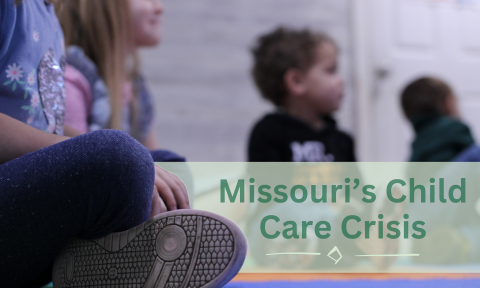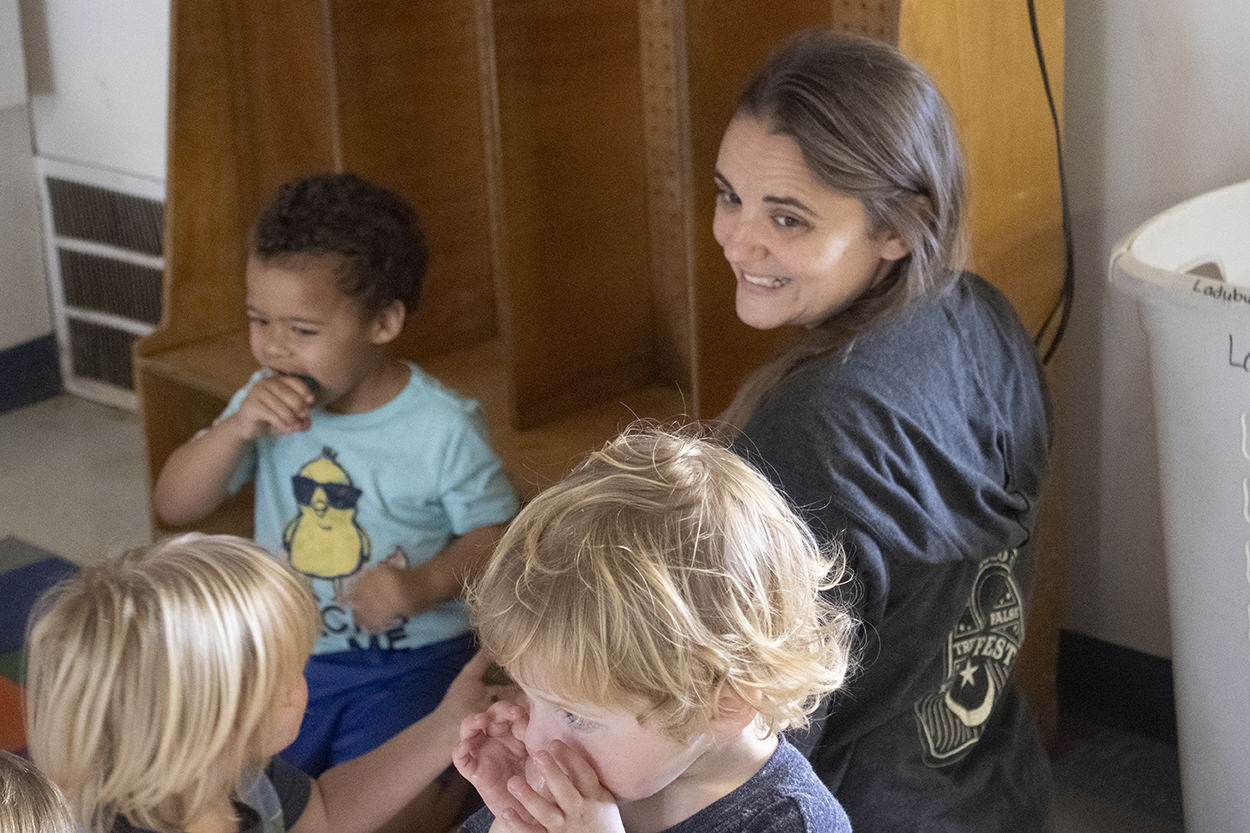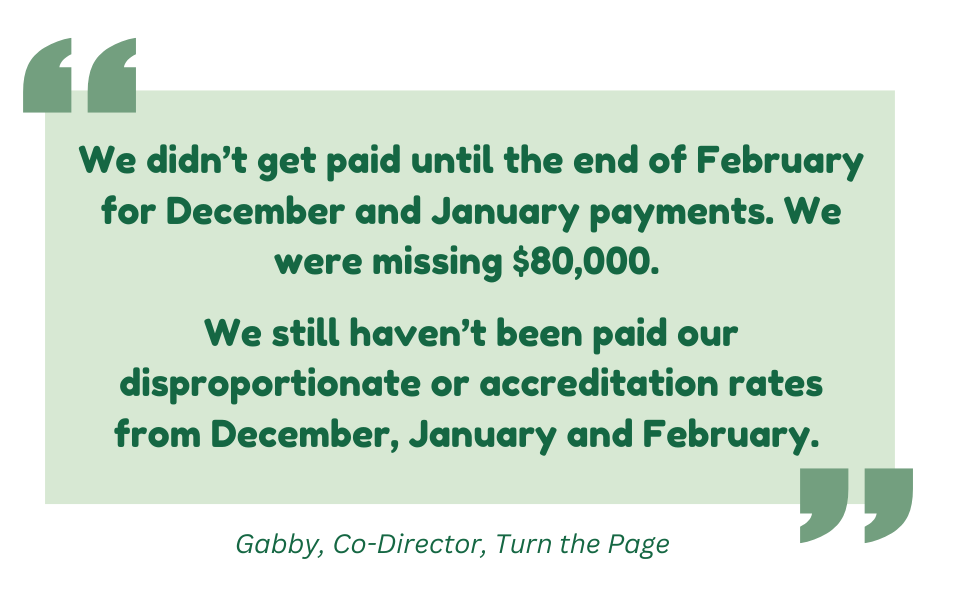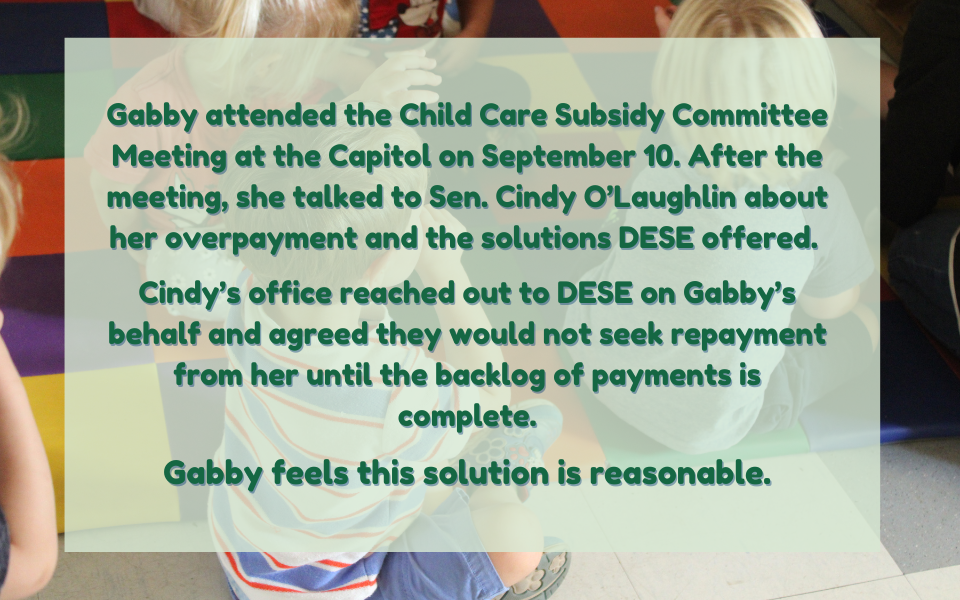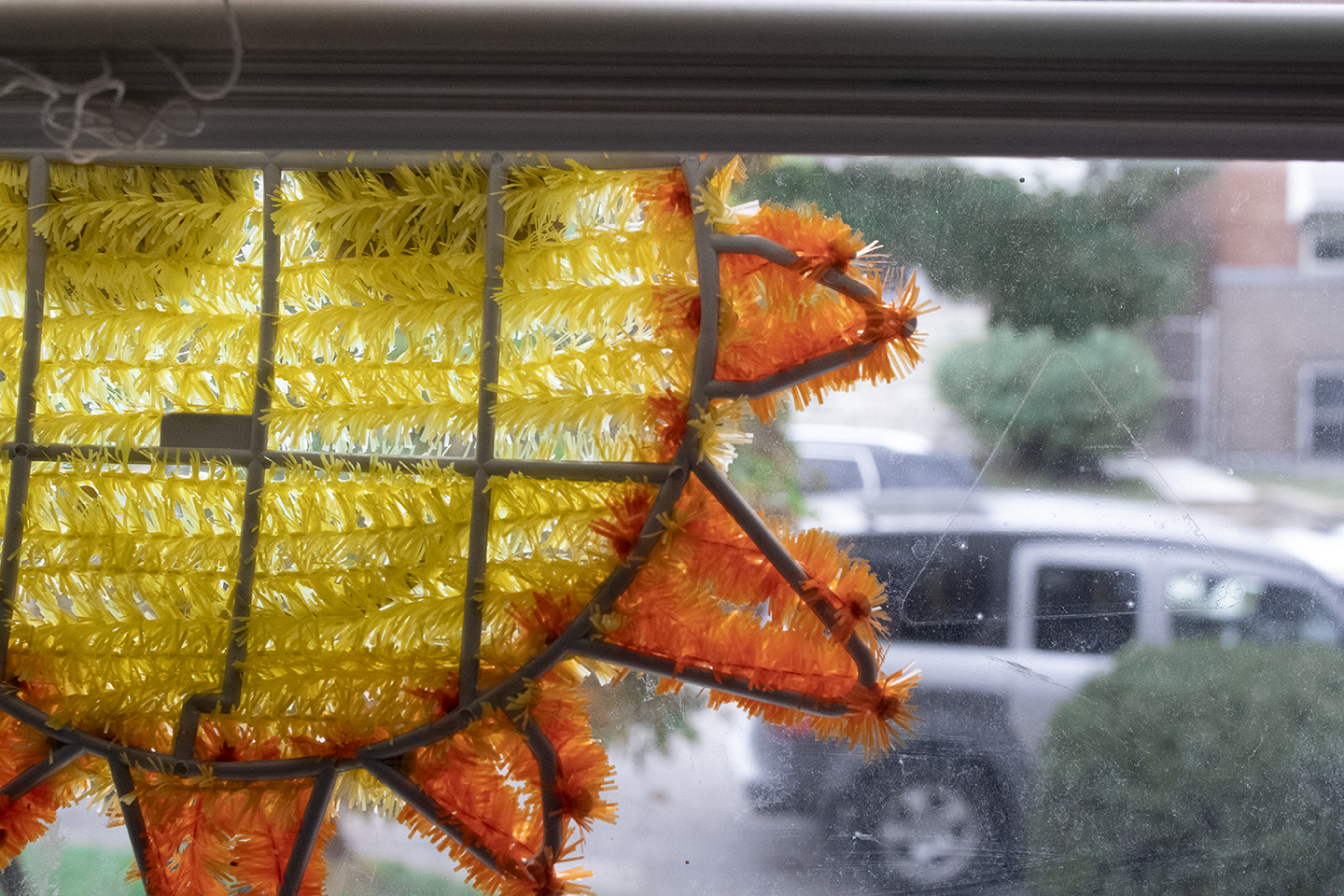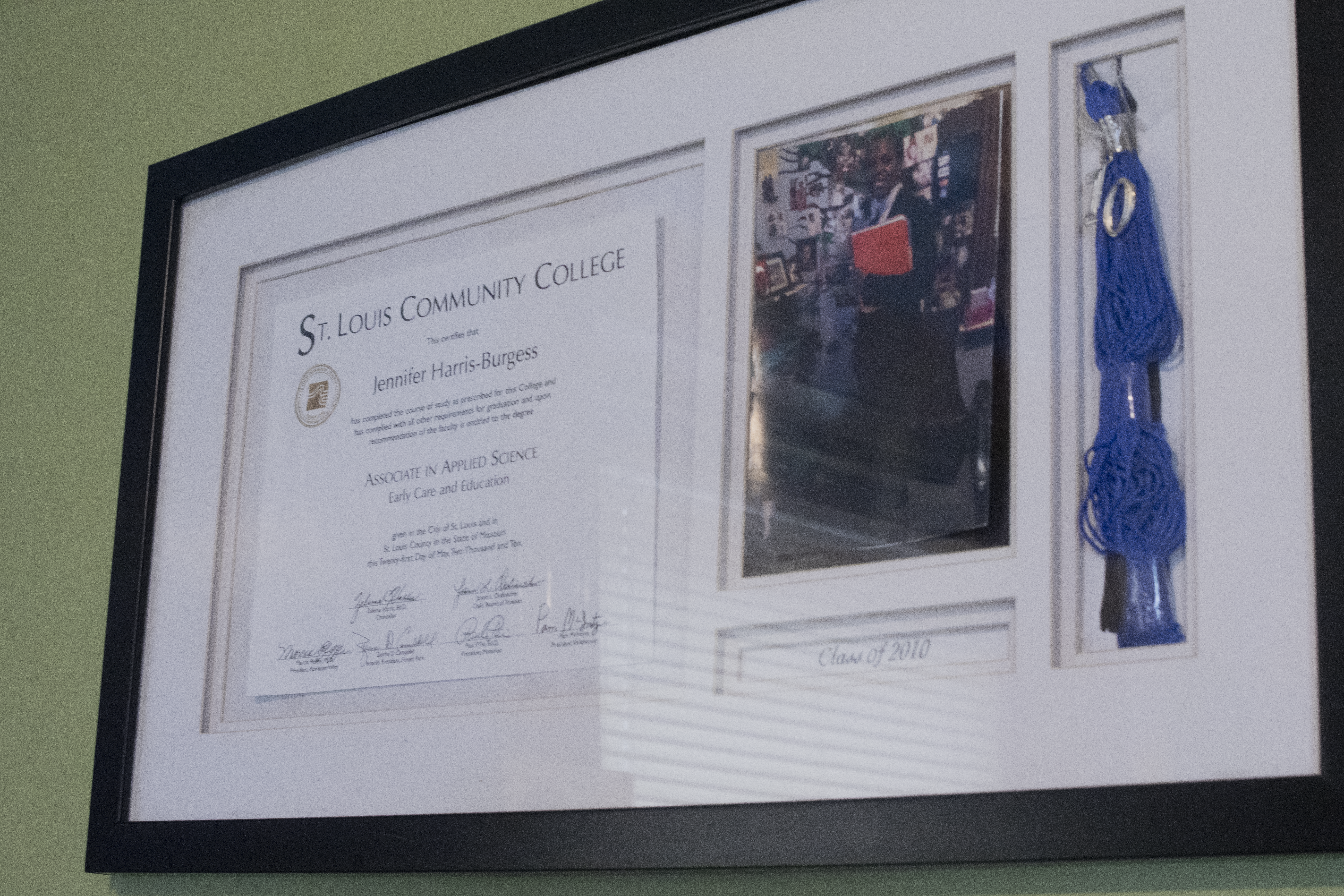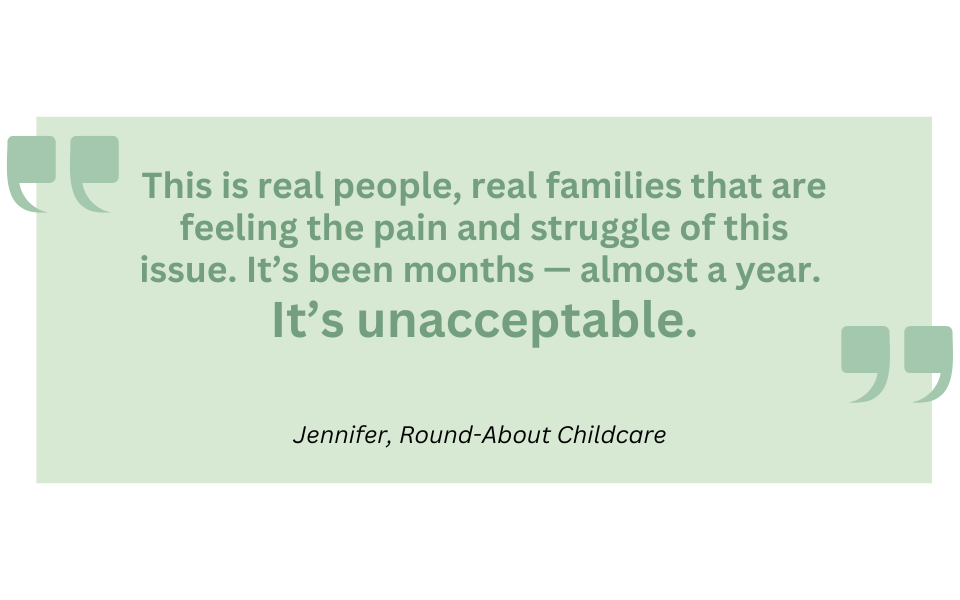In December 2023, Missouri’s Department of Elementary and Secondary Education’s (DESE’s) Office of Childhood acquired the Child Care Subsidy Payment Program from the Missouri Department of Social Services to help ease a department already overloaded by social programs and services. When DESE acquired the management of this program, they contracted with a new software provider through vendors Carahsoft, MTX and World Wide Technologies, which were supposed to streamline the payment process for providers.
Instead, providers across the state say they are in crisis.
Learn more from the Missouri Independent | July 5, 2024: “Payment backlog leaves Missouri child care providers desperate, on the brink of closing.“
Since DESE’s acquisition of the child care subsidy program, many Missouri providers have indicated they are in crisis — some have closed their doors or no longer accept families receiving the subsidy. Others have drained savings or taken out tens of thousands of dollars in loans to make ends meet in the short-term with the hopes that issues will soon be resolved.
For the first half of the year after the DESE acquisition, providers say they saw little to no subsidy payments coming through. Now, although current payments are general processing, they are often hundreds or thousands of dollars short, and providers are still not receiving the thousands of dollars they are owed in backpay from December through around August when payments were not processing.
This negatively impacts not only providers and businesses but thousands of Missouri children and families who are already facing poverty.
Gabby, at Turn the Page Child Development Center is one of those providers…
Since January 2023, Gabby has co-run Turn the Page Child Development Center in Columbia, Missouri with her business partner and friend, Melissa. Although Gabby has run the center for about a year and a half, she has worked there since 2016. The center stayed open through most of the pandemic under “bare-bones” operations and came out mostly unscathed. During this time, Gabby and Melissa started taking on the role of co-Directors. She said the issue they are facing with these subsidy payments is the biggest crisis they have faced.
Although Gabby, along with many other providers, says things are starting to improve, she says her center is only a missed payment or two away from closing their doors. At the beginning of the year, the center spent nearly $50,000 in loans in order to pay staff and the bills to keep the center open and running. They had hoped the subsidy issues would resolve quickly and the loans would be repaid.
Now, almost a year later, the backlog has still not been paid.
For Gabby, one of the biggest stressors she faces is not even the backpay. DESE will often overpay or underpay her subsidies, leading to hours-long battles with customer service. “If you don’t call at 8 a.m. when they open, it’ll be a really long wait,” she says.
One time, the center was overpaid by $16,000 due to invoices accidentally being paid multiple times. When Gabby was able to get ahold of customer service the following Monday morning, the payment had already been sent to SAMII, the State of Missouri’s payment processing software, and it could not be corrected.
She later received a bill for the $16,000 overcharge despite still being owed much more than the cost of the overpayment. She was told she could dispute it, set up a 12-month payment plan or it must be paid in full within 90 days. If she failed to comply, it would be garnished from her other payments.
“It would literally drain my bank account,” Gabby said. “And I still have to, you know, pay my bills, and pay rent, and pay my employees… All because they couldn’t stop the payment.”
At Round-About Childcare, Miss Jennifer relies almost entirely on subsidy payments.
Miss Jennifer, “Miss Jay,” runs an in-home daycare West of Downtown St. Louis with her partner, Miss Frieda. They have been providing services to low-income, mostly Black, families for nearly two decades. Miss Frieda is more than just Miss Jennifer’s colleague—she is family. Miss Frieda might not be related to Miss Jennifer by blood, but she is her sister.
On a cool, sunny day in September, I walked across the street to the redbrick home in which she runs her day care. The two pillars of the front porch awning are decorated like yellow crayons and a yellow and orange sun was displayed at the window. I rang the doorbell and waited for a couple minutes before calling Miss Jennifer, hoping I wasn’t being stood up.
When she answered her phone and warmly welcomed me inside, she explained that her building experiences trouble with technology and WiFi, which leads to trouble not only with the doorbell that is supposed to connect to her phone but with families receiving subsidy being able to sign in using the Samsung tablet provided by the State of Missouri. If families are unable to sign in, Miss Jennifer won’t receive subsidy payment for those days and hours, and the family could be dropped.
Miss Jennifer wishes she could submit the old-school paperwork like she used to.

Miss Jennifer’s walls are filled with photos and artwork of the children she has cared for over the years. In one photo, she is standing next to a young man in a cap and gown who is proudly displaying a beautiful smile and a diploma. In another, she is posed among a group of teens in matching t-shirts for a local event.
“I’ve had baby showers here; I’ve had birthday parties here,” Miss Jennifer said. “I went and witnessed one of my parents get married and signed that I was a witness. . . that was an honor for me. I dressed up and I went! It’s amazing. My job goes further than being a provider here.”
She takes in kids as early as 5 a.m. and sometimes stays past 7 p.m. She attends professional development opportunities and workshops through agencies like WEPOWER St. Louis. She has even gone to doctor’s appointments with parents to provide support and offer a second set of ears.
“Most of the kids that I’ve watched in my time, I watched from the time they are six weeks old,” she says. “That’s too much history. I can’t turn my back on these kids.”
“They’ve still got work to do.”
Although Miss Jennifer has recently started receiving payments for the kids she has now, she, like many others, says she is still owed thousands of dollars in unprocessed payments from prior months.
“Until there is a true solution,” she says, “we are in jeopardy. If there’s no guarantee we’ll get paid, there’s no guarantee for me either.”
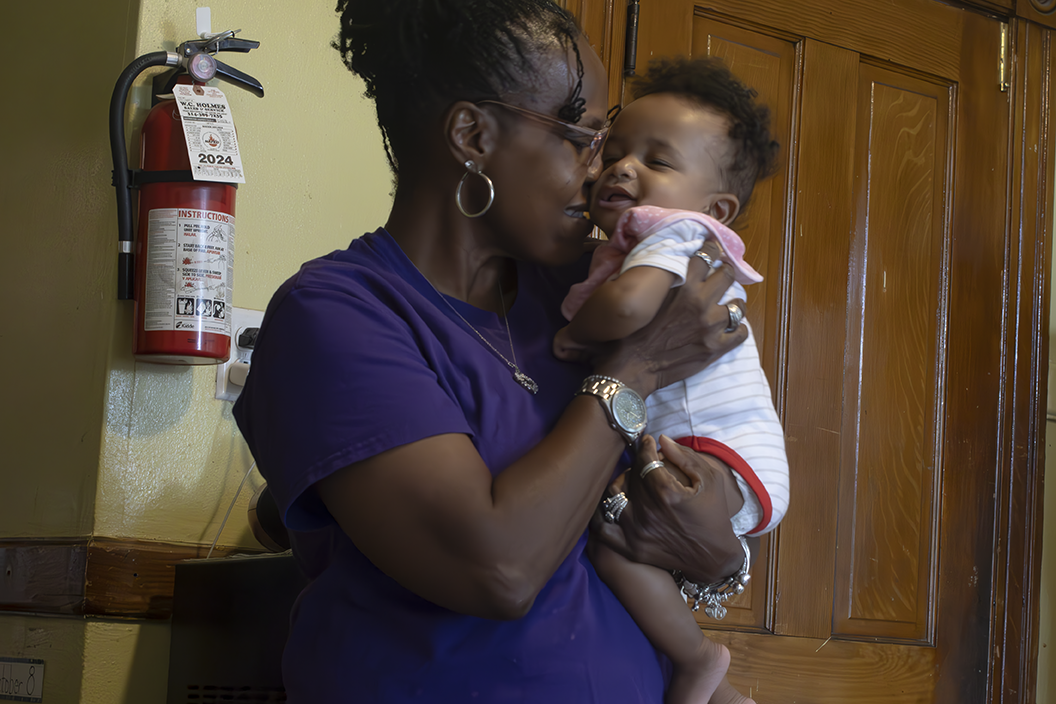
“More than a file folder.”
Running her own business, Miss Jennifer has the freedom to be active in the lives of the children and families she serves and determine how her daycare will run. Aside from getting invited to weddings, baby showers and birthdays, she says “[parents] call me when something happens to the kid and they want me to come to the hospital . . . If my kids don’t come, I’m going to call . . . If one of my parents goes out of town and I don’t hear from them, I’m going to call . . . That’s the kind of relationship I have with my families.”
However, with that freedom and empowerment comes a different set of problems and responsibilities, including long days, mortgage payments, and being taken less seriously than centers. “It’s a struggle,” she said.

“We’re still here.”
Ultimately, Jennifer says she hopes that those in positions to make decisions about this crisis in Missouri remember that there are real people on the ground who are not being paid for their service.
“We have to eat; we have to take care of kids every day, regardless of whether you pay us or not,” she said. “We’re still here. Treat us the way you would want to be treated when it comes to being paid for work that you do . . . Don’t throw us to the side like we’re nothing.”
During September Child Care Subsidy Committee Hearings, DESE spokesperson Pam Thomas promised that state subsidy payments would be caught up by the end of October. The Missouri Independent reported on Tuesday, October 22 that Thomas told the State Board of Education that child care providers receiving subsidy can expect another five weeks of delays due to “missing data.”
Review the Missouri Independent’s reporting | Missouri won’t meet deadline for clearing months-long backlog of child care subsidies • Missouri Independent
The Child Care Subsidy Program uses federal dollars from the Child Care Development Block Grant, funneled through DESE, to pay providers the child care costs of low-income families and children in foster care. Families who qualify must apply for the state to directly pay a child care provider for part or all of the costs of care.

